.
optimization and node.js
Part 1
How the design of Node.js makes your code fast

A Program
A Program
A Program
A Program
A Program
Threading can help
Threading has costs
- Context switching is not free
- Execution stacks take up memory
Threading has costs
- Difficult to develop with
- Locking is hard to do right
Coordinating threads
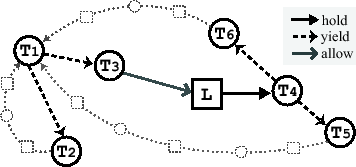
Coordinating threads
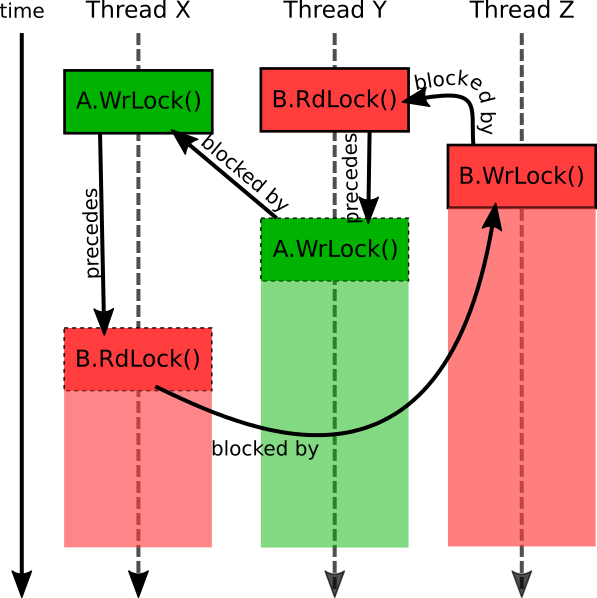
Coordinating threads
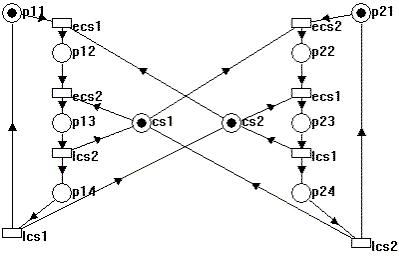
Coordinating threads
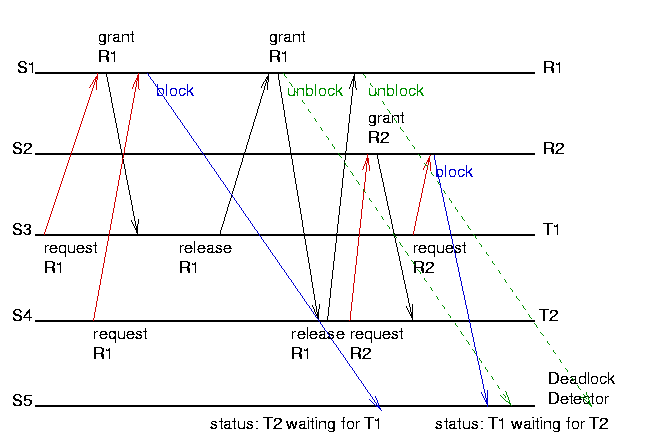
Coordinating threads

There are other ways

Apache vs. nginx
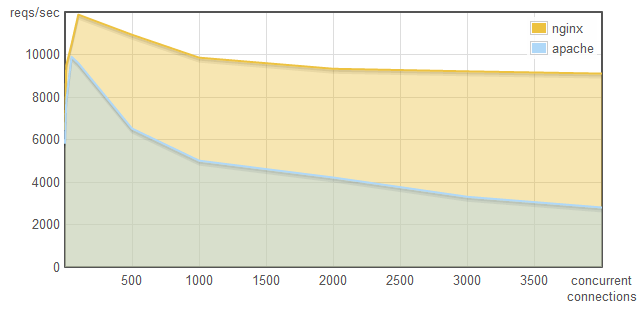
Apache vs. nginx
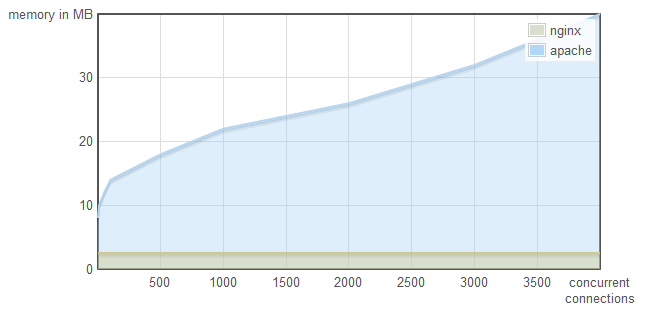
The Difference
- Apache uses threads
- nginx uses an event loop
A Program
A Event Loop Program
A Event Loop Program
An Event Loop Program
- The old program:
var data = DB.fetch("select ...") print(data) ... other stuff ...
- The new program:
var data = DB.fetch("select ...", function(data) { print data }) ... other stuff ...
An Event Loop Program
We're taking a function call and turning the "wait" into a "wait before doing this, but continue with that…."
var data = DB.fetch("select ...", function(data) { print data }) ... other stuff ...
But Where?

But Where?
Wherever there is I/O.
But Where?
Wherever there is I/O.
http.request(options, function (response) { render(`I received ${response.data}`) })
But Where?
Wherever there is I/O.
http.request(options, function (response) { render(`I received ${response.data}`) })
redis.get(hash, (err, result) => {
if (err) callback(err)
console.log(`My result: ${result}`)
})
But Where?
Wherever there is I/O.
http.request(options, function (response) { render(`I received ${response.data}`) })
redis.get(hash, (err, result) => {
if (err) callback(err)
console.log(`My result: ${result}`)
})
http.createServer(function (req, res) { res.sendHeader(200, {'Content-Type': 'text/plain'}) res.sendBody('Hello World\r\n') res.finish(); }).listen(8000)
But Where?
Wherever there is I/O.
http.request(options, function (response) { render(`I received ${response.data}`) })
redis.get(hash, (err, result) => {
if (err) callback(err)
console.log(`My result: ${result}`)
})
http.createServer(function (req, res) { res.sendHeader(200, {'Content-Type': 'text/plain'}) res.sendBody('Hello World\r\n') res.finish(); }).listen(8000)
fs.exists('filename', function (result) { if (result) console.log('filename exists!') })
But Where?
Wherever there is I/O.
http.request(options, function (response) { render(`I received ${response.data}`) })
redis.get(hash, (err, result) => {
if (err) callback(err)
console.log(`My result: ${result}`)
})
http.createServer(function (req, res) { res.sendHeader(200, {'Content-Type': 'text/plain'}) res.sendBody('Hello World\r\n') res.finish(); }).listen(8000)
fs.exists('filename', function (result) { if (result) console.log('filename exists!') })
var i = rl.createInterface(process.sdtin, process.stdout, null) i.question('What do you think of this presentation?', function (answer) { console.log('Thank you for your valuable feedback.') i.close() process.stdin.destroy() })
But How?

But How?
How is this different from threading? Or multiprocessing?
But How?
OS level support for evented I/O
But How?
OS level support for evented I/O, a fundamentally different mechanism.
select()- kqueue (FreeBSD)
- epoll (Linux)
- IO Completion Ports (Windows)
- libevent/libev/libuv
Part 2: V8
A tale of two compilers
A tale of two compilers
- generic
A tale of two compilers
- generic
JS:
a + b
Assembler:
mov rax, a mov rbx, b call AddValues
V8: A tale of two compilers
- generic
JS:
a + b
Assembler:
mov rax, a mov rbx, b call AddValues
Are they integers? Floats? Pointers to strings? AddValues will go through the work to figure that out.
V8: A tale of two compilers
- generic
mov rax, a mov rbx, b call AddValues
- optimizing
mov rax, a mov rbx, b add rax, rbx
..assuming we know they are integers…huge speedup.
How's that work?
Monomorphism
Monomorphism
- Compiler sees one type
- Back-patches the compiled code to accommodate that type
- With a minimal guard condition
Inline caching
candidate % this.primes[i] == 0
push [ebp+0x8] mov eax,[ebp+0xc] mov edx,eax mov ecx,0x50b155dd call LoadIC_Initialize ;; this.primes push eax mov eax,[ebp+0xf4] pop edx mov ecx,eax call KeyedLoadIC_Initialize ;; this.primes[i] pop edx call BinaryOpIC_Initialize Mod ;; candidate % this.primes[i]
Inline caching
candidate % this.primes[i] == 0
push [ebp+0x8] mov eax,[ebp+0xc] mov edx,eax mov ecx,0x50b155dd call LoadIC_Initialize ;; this.primes push eax mov eax,[ebp+0xf4] pop edx mov ecx,eax call KeyedLoadIC_Initialize ;; this.primes[i] pop edx call BinaryOpIC_Initialize Mod ;; candidate % this.primes[i]
cmp [edi+0xff],0x4920d181 ;; Is this a Primes object? jnz 0x2a90a03c mov eax,[edi+0xf] ;; Fetch this.primes test eax,0x1 ;; Is primes a SMI ? jz 0x2a90a050 cmp [eax+0xff],0x4920b001 ;; Is primes hidden class a packed SMI array? mov ebx,[eax+0x7] mov esi,[eax+0xb] ;; Load array length sar esi,1 ;; Convert SMI length to int32 cmp ecx,esi ;; Check array bounds jnc 0x2a90a06e mov esi,[ebx+ecx*4+0x7] ;; Load element sar esi,1 ;; Convert SMI element to int32 test esi,esi ;; mod (int32) jz 0x2a90a078 ... cdq idiv esi
Inline caching
- Speculative
- Can be foiled
- Will get back-patched again
- To become polymorphic
- And the megamorphic (the worst)
On a per-call basis
- Keep functions relatively short!
Ways to check optimization
node --allow-natives-syntax
function printStatus(fn) { switch(%GetOptimizationStatus(fn)) { case 1: console.log("Function is optimized"); break case 2: console.log("Function is not optimized"); break case 3: console.log("Function is always optimized"); break case 4: console.log("Function is never optimized"); break case 6: console.log("Function is maybe deoptimized"); break case 7: console.log("Function is optimized by TurboFan"); break default: console.log("Unknown optimization status"); break } } printStatus(myFunction); %OptimizeFunctionOnNextCall(myFunction) myFunction()
Ways to check optimization
node --trace_opt --trace_deopt
Function is not optimized [compiling method 0x3730d8083cb9 <JS Function myFunction (SharedFunctionInfo 0x3dcabc53d291)> using TurboFan] [optimizing 0x3730d8083cb9 <JS Function myFunction (SharedFunctionInfo 0x3dcabc53d291)> - took 1.606, 0.000, 0.000 ms] Function is optimized by TurboFan
Ways to Kill Optimization
Things not optimized (right now):
- Generator functions
- Functions that contain a for-of statement
- Functions that contain a try-catch statement
- Functions that contain a try-finally statement
- Functions that contain a compound let assignment
- Functions that contain a compound const assignment
- Functions that contain object literals that contain proto, or get or set declarations.
Ways to Kill Optimization
Things likely never optimizable:
- Functions that contain a debugger statement
- Functions that call eval() on a literal
- Functions that contain a with statement
Also: for speed, keep numbers under 31 bits!
Ways to Kill Optimization
- Mis-use of the arguments array
only use:
- arguments.length
- arguments[i]
- One exception: fn.apply(y, arguments)
References
- http://thlorenz.com/v8-perf/
- http://mrale.ph/v8/resources.html
- https://github.com/petkaantonov/bluebird/wiki/Optimization-killers
- http://v8-io12.appspot.com/
- https://gist.github.com/trevnorris/6fea5ab2632dff8b5b25#file-perf-training-syllabus-md
- http://jayconrod.com/posts/54/a-tour-of-v8-crankshaft-the-optimizing-compiler
- https://github.com/vhf/v8-bailout-reasons
- https://www.npmjs.com/package/v8-natives
- http://ariya.ofilabs.com/2014/08/javascript-and-v8-turbofan.html